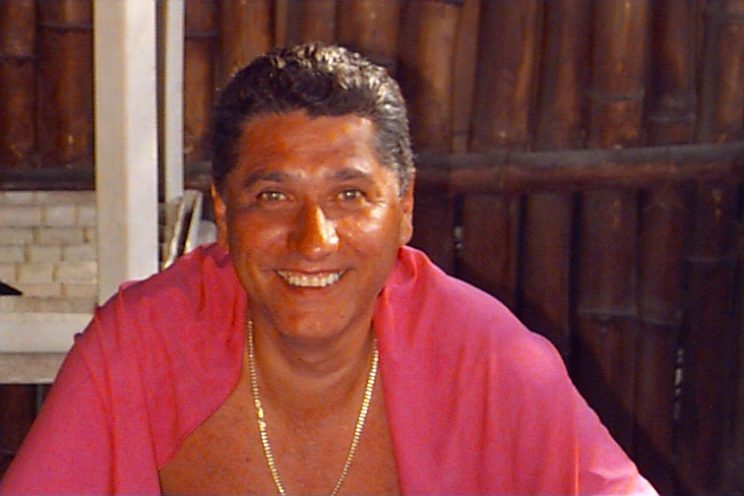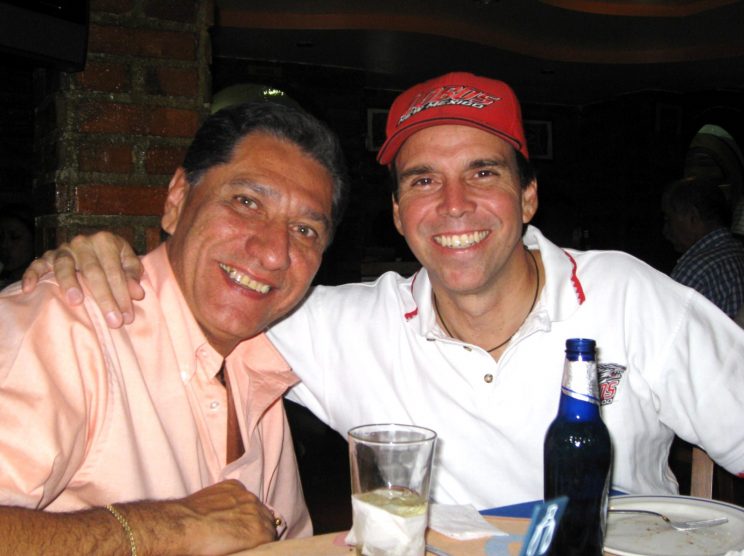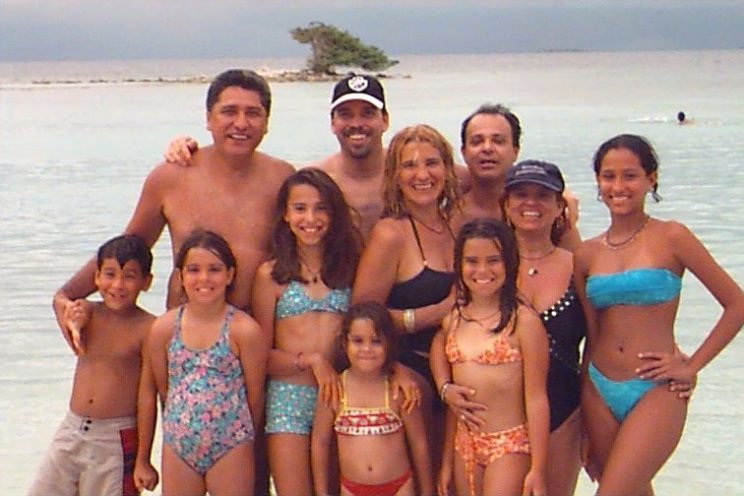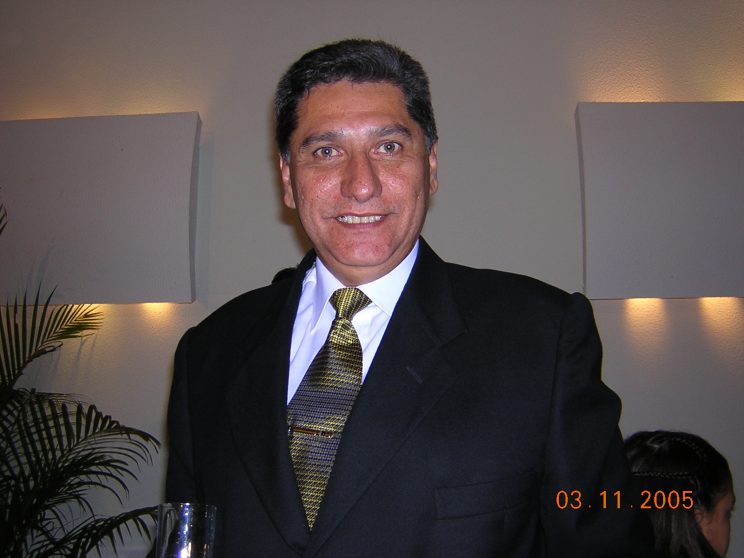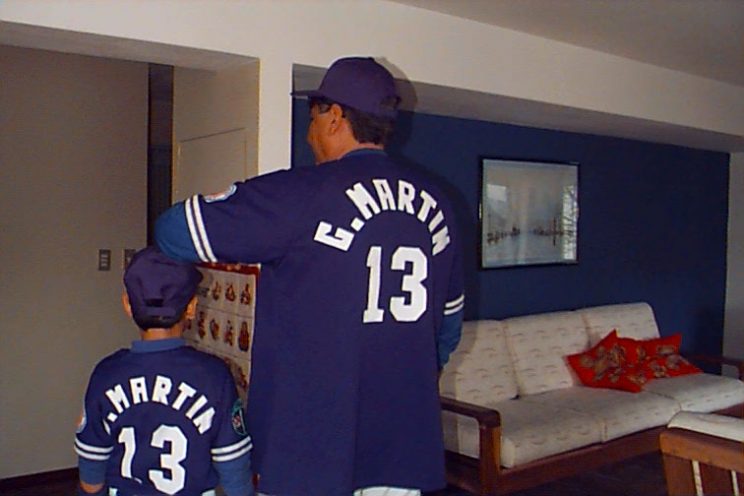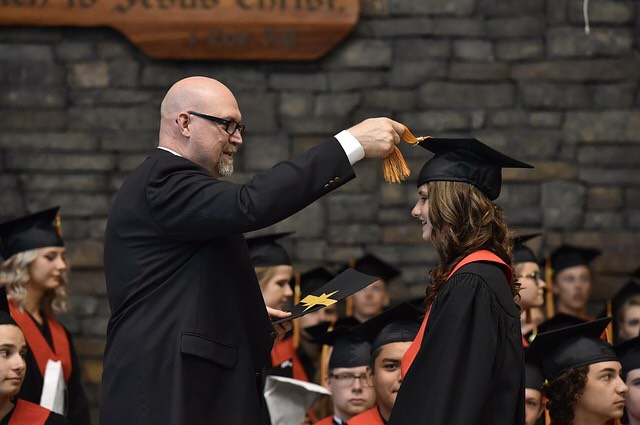From our ranks, we have fallen soldiers. Some have gone without me even being aware, until sometime later, when in conversation, we hear about their absence.
“Did you hear about Chris?” I remember being asked, after the first from our class fell. I shook my head, not knowing what had happened.
“Oh, he’s no longer here!” came the answer straight and clear.
We all seem to want to know the circumstances, yet may fear the response; the why and the what for. Yet in the end, only one thing stands out, only one thing matters. They are no longer here to fight another day.
The game of life is much like a battle. From our first breath, we need to struggle to make sure the energy of life fills our lungs. From that point on life beats magically within us, as it does for all living things. In order to keep going, battles we must overcome.
Our first major challenge comes as we strive to live life outside of our mother’s womb. For any one of a number of reasons, this often doesn’t happen. Infant mortality depends in large part on where a woman lives when she has her baby. Many places around the world can’t handle complications routinely managed where more advanced medical care is available.
As we grow up, so too there are dangers. Yet we have all seen how babies bounce back. They are surprisingly resilient! They can take a licking and keep on ticking. In fact, until we teach them to cry, when they fall they often do not, unless of course it really hurts. Perhaps one of our biggest dangers as we grow is how to deal with rejection. Many cannot and do not, choosing instead to take their lives as a way out of their misery.
And so we go through life, her topsy turvy ways a part of the grand scheme of things. While some of us go sooner and others later, there is only one thing for certain, when it’s all said and done, even the last one standing will too succumb to life’s final stratagem, taking us from this reality we now know, to something which as yet remains unknown.
As for our class, around 80 of us that graduated in 1980, from the Albuquerque Academy. Of that group, the four who have fallen represent about 5% of our total number. Though small in percentage, these four people represent so much more to me. On the one hand, but for the grace of God, there go I; and on the other, each lives on in my soul in many different ways.
Of the four, perhaps the one I knew the least was Chris Mullins. What I did know about him, I liked quite a lot. He liked to party and he liked to have fun. When he left us, I was reminded that our time too here on Earth is limited, and no one lives forever.
Tim Anderson was the one of the four I knew the best. He and I were bosom buddies in high school. Our schedules were similar, and we had many of the same interests. We would walk over to the gym during football and baseball season to practice, and competed with each other against others on many playing fields. During the weekends, we normally went to the same parties and hung out in the same places. When we played baseball, he pitched and I caught. When we played football, he ran and I blocked. When we went out on double dates, however, each of us was on our own.
Then there was Mark Skotchdopole. He was in a separate reality and he continues to be one of the nicest people I have ever met. In my heart, he is one of my greatest heroes. During high school, we didn’t share the same sports or activities, but when we did hook up, we always had a good time. With Mark, I got to know him better later, when he was already sick, and getting sicker. I had the opportunity to talk with him and visit with him on several occasions before he died in 2012. His outlook on life and positive attitude, even in the face of death, stay with me to this day. While I’m sure he probably had some bad days, and likely too got down, I never saw it.
And now to their ranks, the first female from our group goes. What I can I say about CJ Gulley (Coffin)? While I’m sure each has their own opinion, this is my take. Many of the girls were surely intimidated by her beauty. Blond hair, blue eyes and a nice slim body were, no doubt, the envy of more than one. That she got the boys’ attention, probably pissed them off as well. Yet behind the façade, which everyone could see, was a woman who strove to be integral in thought, mind, and body. Eating right and exercising were a part of her daily routine, as was fighting for justice in her own way, working in social services and seeing how the monster works from the inside out.
This message cannot be complete without also mentioning Grant Bauer. Though he wasn’t in our class (though far outclassed many of us), he too was an integral part of experience. His memory also lives on in those of us fortunate enough to have known him.
40 years after we graduated, and almost exactly 15 years after many of us saw each other, we continue forward with the great majority still alive, and a good many of that number still kicking. It is eerie to think that 15 years ago to the day I was sitting down having a beer with the three classmates who have fallen since that time. Yet here I stand, along with the rest. We continue daily, still in the game, doing our best to make the right moves.
Surely, more and more of us will drop as time goes by, it’s inevitable. I say this not as an ominous omen, rather as a reality of life. While Chris, Tim, Mark, CJ, and Grant are no longer with us in body, they can continue to live on the hearts of those of us who knew them. Perhaps this is what a soul and eternity are all about… Regardless, they can each serve as a beacon of light to remind all of us:
Be life long or short, we should be grateful for each and every moment here on Earth.
∞ Rob McBride ∞
27 Sep 2020
LL V 5
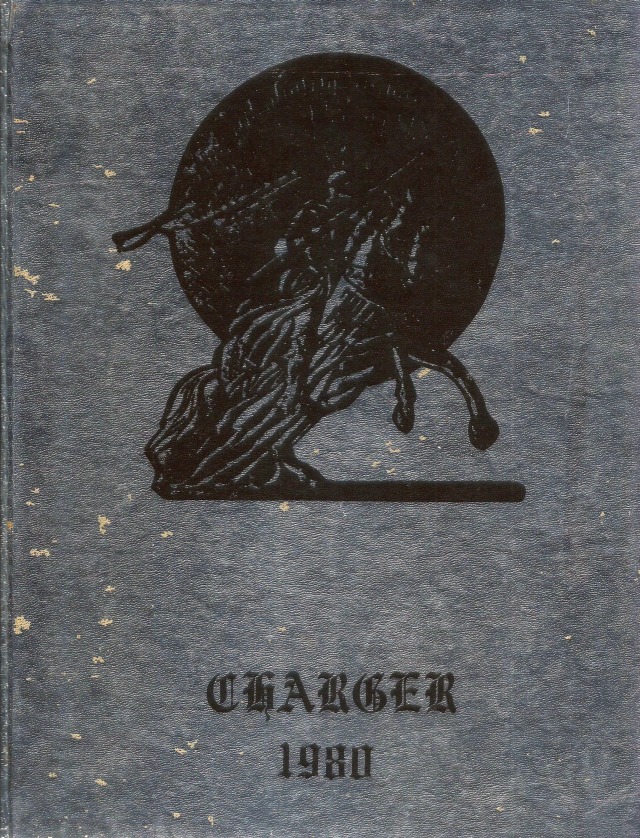
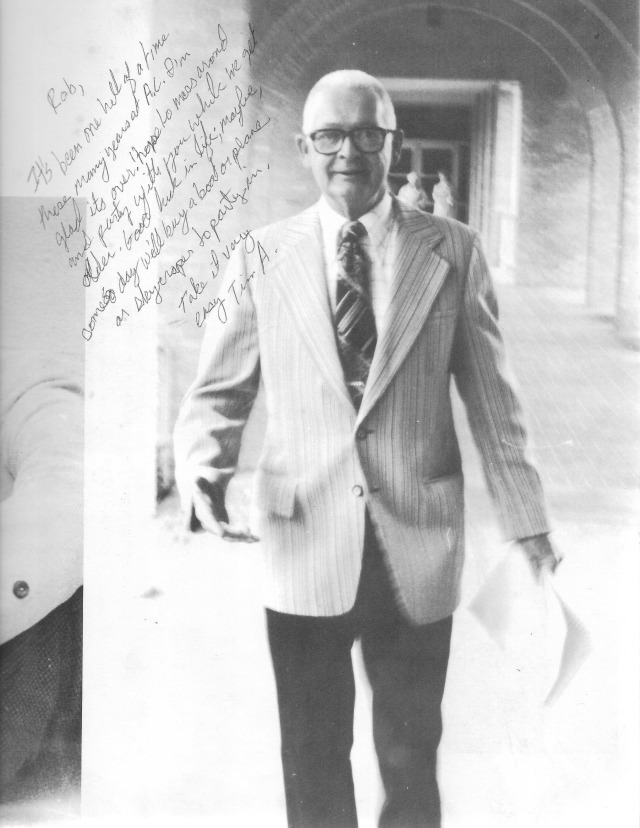
Tim chose to write me a note on Mr. Marburger’s photo, who too has passed. 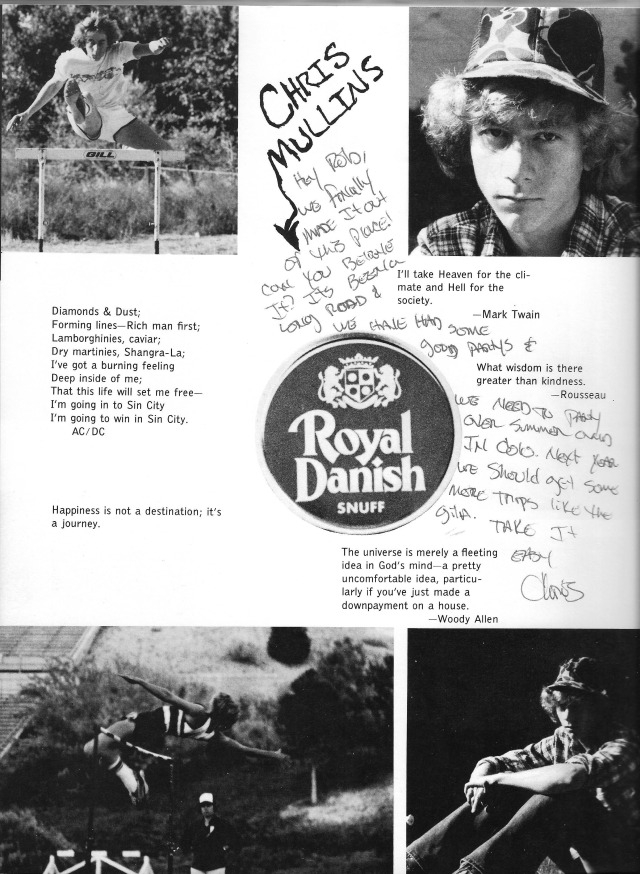
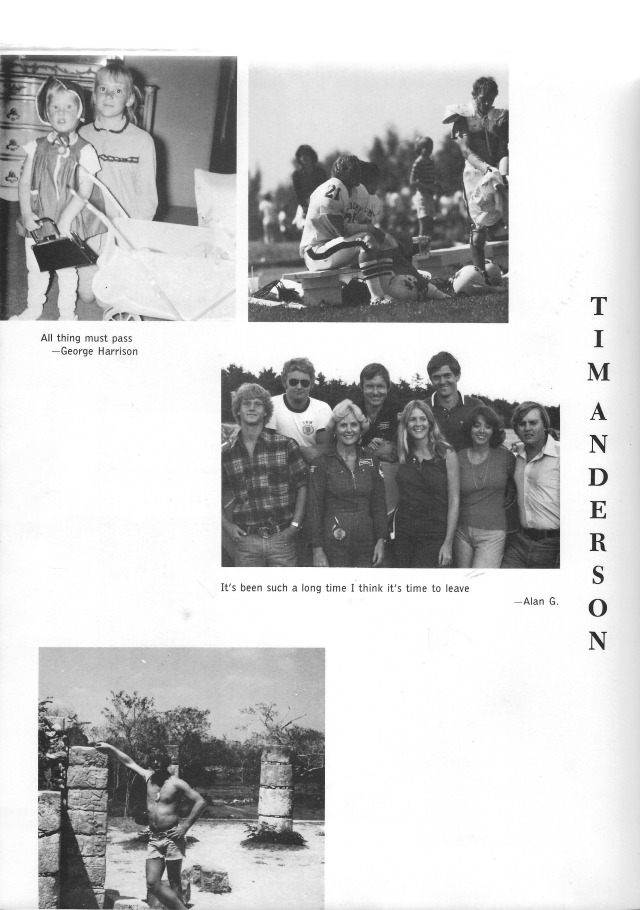
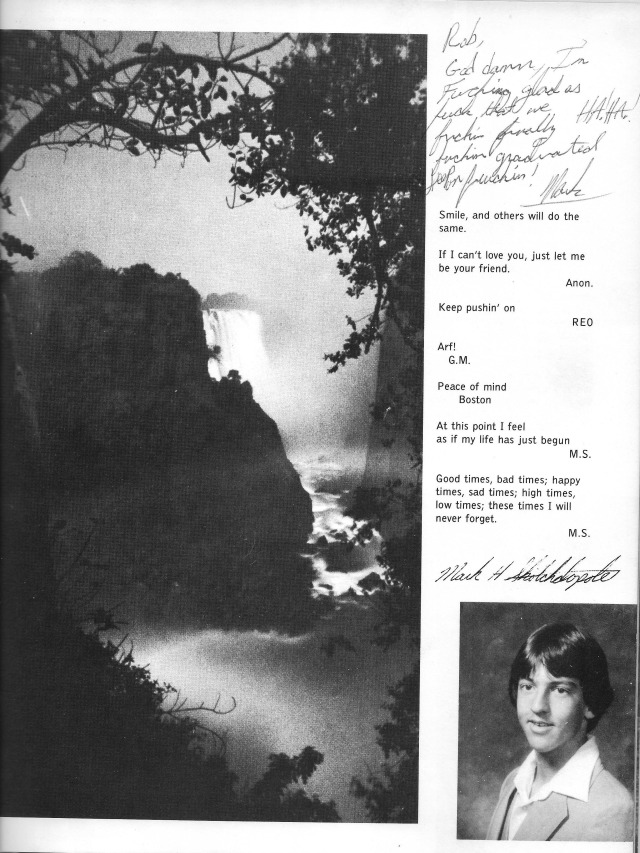
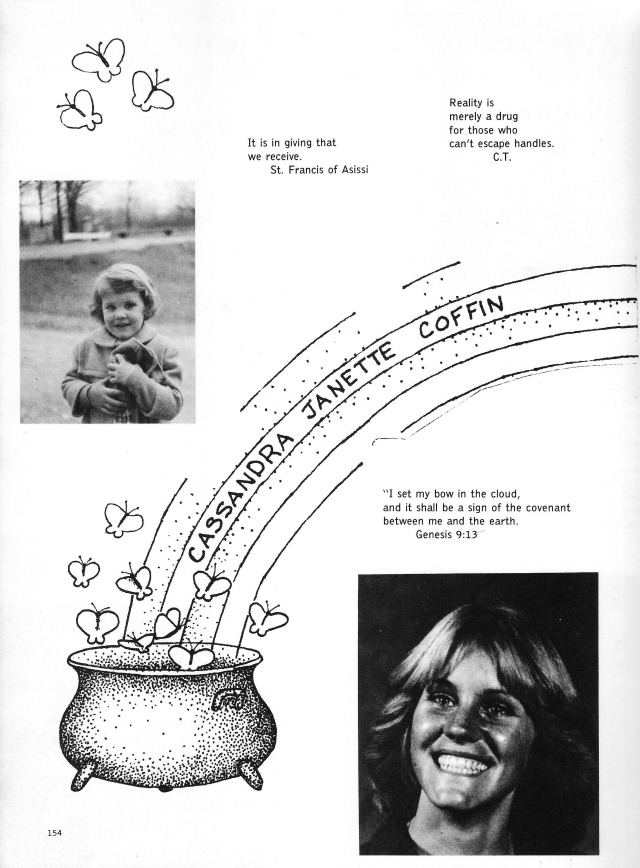
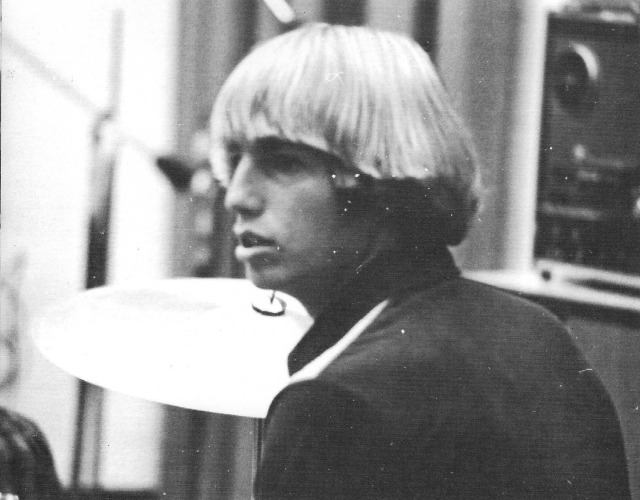
Grant, doing his drumming thing


